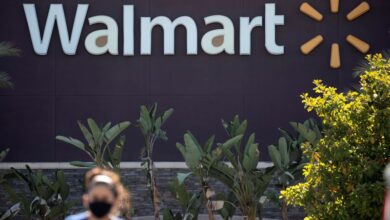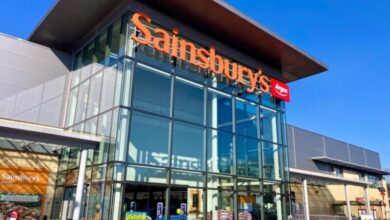Private equity suitors line up for Bausch + Lomb eyecare auction
Unlock the Editor’s Digest for free
Roula Khalaf, Editor of the FT, selects her favourite stories in this weekly newsletter.
Blackstone, Advent International and TPG Capital are among a long list of private equity firms studying bids for Bausch + Lomb, according to people close to the discussions, after the eyecare company kicked off a sale process to break the impasse over a spin-off from its indebted parent.
Bausch + Lomb was put up for sale after a planned separation from its parent company Bausch Health, formerly known as Valeant, unravelled amid tensions between activist investors and creditors owed $21bn by the parent company.
Private equity groups KKR, CVC Capital and Hellman & Friedman are also considering bids for the eyecare business, ahead of a soft deadline later this week, according to people familiar with the matter.
The firms have held meetings with Bausch + Lomb’s management team — which is led by chief executive Brent Saunders, a well-known dealmaker — in recent weeks, they added.
Potential bidders will have to express interest in making an offer by Friday to stay in the process, people familiar with the matter said. There is no guarantee that the sale process will result in a deal. Bausch Health is also exploring other options, including refinancing some of its debt.
Bausch + Lomb, which is being advised by Goldman Sachs, wants to enter into exclusive talks over a possible sale by the end of October. A target sale price for the business could not be ascertained, but is likely to come at a premium to the current enterprise value including debt of $11.5bn.
TPG is particularly interested in Bausch + Lomb as it could extract synergies with BVI Medical, an ophthalmology company it already owns, one person said.
Bausch + Lomb and Goldman Sachs as well as Advent, Blackstone, H&F, KKR and TPG declined to comment. Bausch Health and CVC did not immediately respond to a request for comment.
After announcing a spin-off four years ago, Bausch + Lomb was listed as a separate company in 2022 but Bausch Health retained an 88 per cent shareholding. Because of concerns from lenders over the health of Bausch Health’s balance sheet, the original plan to strike a deal with investors to exchange Bausch Health stock for Bausch + Lomb came undone.

Bausch Health creditors, including Apollo Management, Elliott Management, GoldenTree Asset Management and Silver Point Capital, opposed a spin-off over concerns that it could leave the parent company insolvent, as it would lose its more profitable subsidiary just ahead of roughly $10bn worth of maturities coming due before the end of 2027.
In contrast, Bausch Health’s top shareholders, activist investor Carl Icahn and John Paulson’s fund Paulson & Co, who have board representation at both the parent company and its subsidiary, had supported the completion of a spin-off as it would give them a large shareholding in the more profitable eye care business. A sale, however, could satisfy both parties, as it would realise a sizeable return for shareholders and give Bausch Health cash to pay its debts.
Bausch + Lomb is projected to generate nearly $860mn in adjusted earnings before interest, taxation, depreciation and amortisation from $4.7bn in revenues this year, nearly three-fifths of which comes from sales of contact lenses and dry eye drugs Xiidra and Miebo. The company also sells surgical equipment to ophthalmologists.
Since the Financial Times reported over the weekend that Bausch + Lomb was working with advisers to test interest from private equity buyers, its share price has increased 19 per cent, valuing its equity at $6.5bn as of Tuesday’s market close.
David Saxon, a Needham analyst, said in a note earlier this week that he believed private equity was “the most likely buyer”. But he added that “it is uncertain a [Bausch + Lomb] sale would alleviate investors’ concerns around [Bausch Health’s] solvency and could be challenged by [Bausch Health’s] creditors.”
Bausch Health faces further uncertainty as its lead drug — Xifaxan, a gastrointestinal medication — is set to come off patent by 2029. Bausch Health’s market value has risen by 13 per cent to $2.6bn this week, but remains below its value before the company faced legal challenges over its Xifaxan patents.






